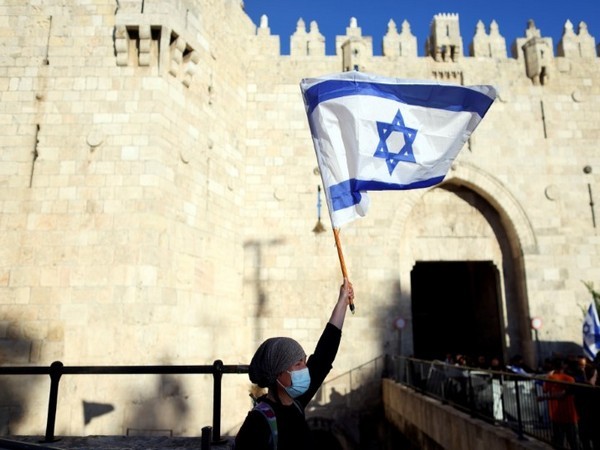
Amnesty: Possible war crimes in recent Israel-Gaza fighting
Jun 14, 2023
Gaza [Palestine], June 14: War crimes were possibly committed during last month's fighting between Israel and Palestinian militants in the Gaza Strip, Amnesty International says.
A report by the human rights group concludes that Israeli forces conducted apparently disproportionate air strikes which killed Palestinian civilians.
It also says the indiscriminate Palestinian Islamic Jihad (PIJ) rocket fire killed both Israeli and Palestinian civilians.
Amnesty is calling on the International Criminal Court to investigate.
The Israel Defense Forces (IDF) said it operated in accordance with its obligations under international law and made efforts to minimize harm to civilians that were not required by law.
A spokesman for PIJ said the group welcomed Amnesty's report.
Thirty-four Palestinians and one Israeli were killed in the latest round of cross-border fighting, which erupted on 9 May and ended five days later with an Egyptian-brokered ceasefire.
It began when Israeli warplanes carried out overnight air strikes that killed three senior commanders of PIJ's military wing in their homes as well as 10 civilians, including relatives and neighbours of the men.
Amnesty International said the dropping of precision-guided bombs on densely-populated areas when families were sleeping suggested "that those who planned and authorised the attacks anticipated - and likely disregarded - the disproportionate harm to civilians"."Intentionally launching disproportionate attacks. is a war crime," it warned.
The IDF said that during the fighting which followed, its aircraft struck more than 400 military targets belonging to PIJ and killed three other senior commanders of its military wing, which it blamed for the firing of dozens of rockets and mortars at Israel the previous week.
Amnesty investigated nine strikes, including those that targeted the three PIJ commanders in their homes.
The IDF said it "made numerous efforts to minimise harm to the civilian population in the Gaza Strip, including by delaying and even cancelling planned attacks when the unexpected presence of civilians was identified".
"The IDF carried out attacks only after a real-time assessment before the attack that the expected collateral damage to civilians and civilian property will not be excessive in relation to the military advantage anticipated in the attack, according to the information it had in the circumstances," it added.
Amnesty also said it "identified a pattern of extensive destruction of property" in Gaza as a result of the Israeli strikes that "failed to meet the exceptions under which attacking homes and other civilian objects would be justified".
It cited the targeting on 13 May of a four-storey building in the Jabaliya refugee camp that was home to 42 people from the extended Nabhan family.
Amnesty found no evidence that the building had been used to store weapons or any other military equipment, or that rockets had been launched nearby.
"In our investigation, we heard vivid accounts of bombs obliterating homes, of fathers digging their little girls out from under the rubble, of a teenager fatally injured as she lay in bed holding a teddy bear," said Amnesty's Middle East director HebaMorayef.
"More frightening than any of this is the near certainty that, unless perpetrators are held to account, these horrifying scenes will be repeated."
The IDF said: "Islamic Jihad locates its operational centres in civilian residential buildings and uses the civilian population as a human shield.
"Several hours prior to strikes, the IDF ensured that the buildings were evacuated from civilians by various means, such as telephone calls and the 'roof-knocking' procedure. These buildings were not attacked until they were fully evacuated of the civilian population."
PIJ responded to the Israeli strikes by firing more than 1,400 rockets towards Israel, forcing tens of thousands of civilians to take cover in bomb shelters.
The IDF says 1,139 crossed into Israeli territory in total and that about 430 headed for populated areas were intercepted by its missile defence systems.
An Israeli woman and a Palestinian labourer from Gaza were killed by rockets that hit an apartment in Rehovot and a building site in Shokeda respectively.
Amnesty says rockets that fell short in Gaza also appear to have killed three Palestinian civilians, including two children.
The report cites relatives of the children as saying they died when a rocket hit al-Sahaba Street in Gaza City on the afternoon of 10 May.
PIJ denied at the time that a rocket hit the area and blamed Israeli strikes, but witnesses told a researcher that individuals associated with the group removed remnants of a rocket in the immediate aftermath of the incident.
"Known for their inherent inaccuracy, rocket attacks by Palestinian armed groups are indiscriminate; these attacks must be investigated as war crimes and victims be granted prompt and adequate redress," Ms Morayef said.
PIJ spokesman Tariq Salmi did not comment on that allegation.
But he told the BBC that Amnesty's report "proves that the occupation [Israel] was the one that began the aggression by committing grave crimes".
"The enemy uses the weapons it has to kill Palestinian civilians and we are doing our part to defend ourselves against the crimes committed by Israel against the Palestinian people," he added.
Source: Fijian Broadcasting Corporation









